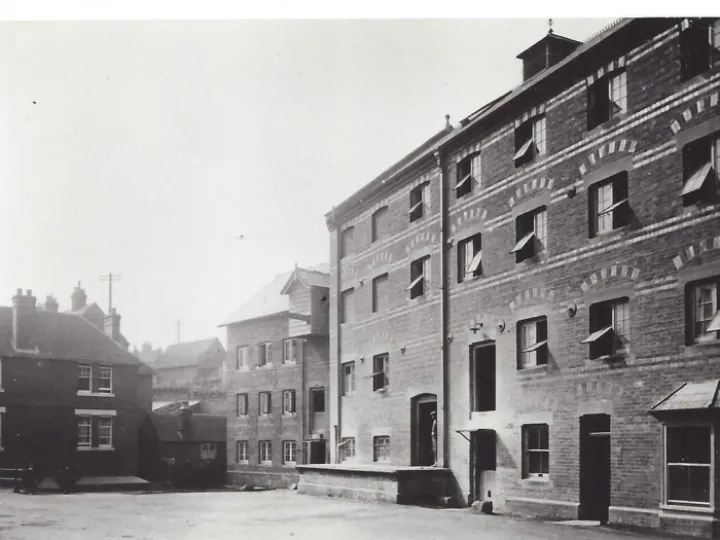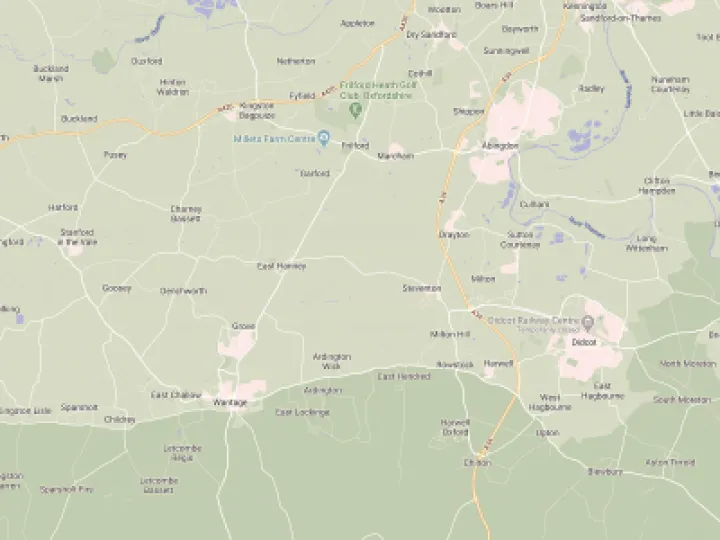Wessex Mill
Wessex Mill
By Emily Munsey, recorded by Helen Carter
The track can be heard here: Wessex Mill
More information about the mill can be found here:[Wessex Mill
]
The text is as follows:[
]Tucked away in the small Oxfordshire town of Wantage, less than a five-minute walk from the middle of this bustling market town, sits Wessex Mill, a small artisan flour mill run by father and daughter team, Paul and Emily Munsey. Originally known as Clarks, this flour mill has been owned and run by the Munsey family since 1948. This award- winning establishment holds a strong milling history, with Emily joining in 2017 to continue a heritage that spans five generations.
The story begins in 1895 with Emily's great great-grandfather William Henry who was forced to relocate from Cambridge to Oxford following a devastating outbreak of foot and mouth, consequently moving from farming into flour milling. Originally starting as a partnership with Archer Cowley, the mill situated in Osney in Oxford became W.H. Munsey Ltd with William Henry taking complete ownership of the business in 1911. The family venture continued as sons Ellis and Keith joined the workforce but with the outbreak of World War I and milling not being essential work, Henry's sons both left Oxford to fight in The Great War.
Surviving the war, the brothers returned and settled back into milling, but in 1927 with the country in post-war depression, land owners Christ Church issued an ultimatum meaning the Munseys must purchase the land or vacate the mill. They managed to borrow the money and shortly after buying the mill, William Henry died.
Ellis and Keith continued to run the mill through the 1930s and, now too old, avoided having to fight in World War II. The war ended and the business continued, but in 1946 disaster struck with a fire that burned the Osney mill to the ground. With the country short of building supplies after the war, permission to rebuild the mill in Oxford was denied, so the brothers purchased Mr Clark's biscuit flour mill in Wantage to continue milling.
The mill carried on into its third generation with cousins Dick and Bill (sons of Ellis and Keith, respectively), and with a more stable global economic and political landscape for the remainder of the 20th century, Bill's son Paul joined the business in 1982. Today Tony, Bill's younger son runs the old mill site in Osney which in 2010 was converted into housing and includes a marina and hydroelectric screw.
In 2017, 122 years after the first Munsey arrived in Oxfordshire to become a miller, Paul's youngest daughter, Emily – the 5th generation – joined him, with Bill retiring after more than 60 years in the mill. Bill sadly died in 2019 following a long period of ill health.
With a staff of 35 people, the Wessex Mill is the UK's smallest commercial roller mill, producing a tiny fraction of that produced by the biggest mills. The team manages all operations; from procurement and collection of wheat and cereals, through to flour distribution by their fleet of lorries. The wheat comes mostly from fields around Wallingford, bought from 21 different farms. Thanks to modern farming methods, 100 percent of the wheat used by the mill now comes from the UK, a vast change from the days before WWII when 80 percent of flour was imported.
Producing high-quality award-winning flour, Wessex supplies wholesale to small bakeries, hotels and restaurants in the south of England and Wales, as well as retail to fine-food and farm shops.
With Emily and Paul at the helm, Wessex Mill has continued to succeed and grow as the quality producer of artisan flour it is today, shipping throughout the UK, and beyond.
The historic Wessex Mill in Mill Street, Wantage, has announced that it will cease production at the end of the year due to rising electricity prices, which it says made it unviable to continue milling on site. The Wessex Mill brand has been acquired by Doves Farmfood in Hungerford, which will continue milling grain under the Wessex Mill name at its site in West Berkshire.
Paul Munsey, Managing Director at Clarks, which owns Wessex Mill said "it was a difficult decision to close the mill, but we are very pleased to have been able to transfer the brand to another familyflour mill, which will continue the tradition of milling local grains in the North Wessex Downs".


